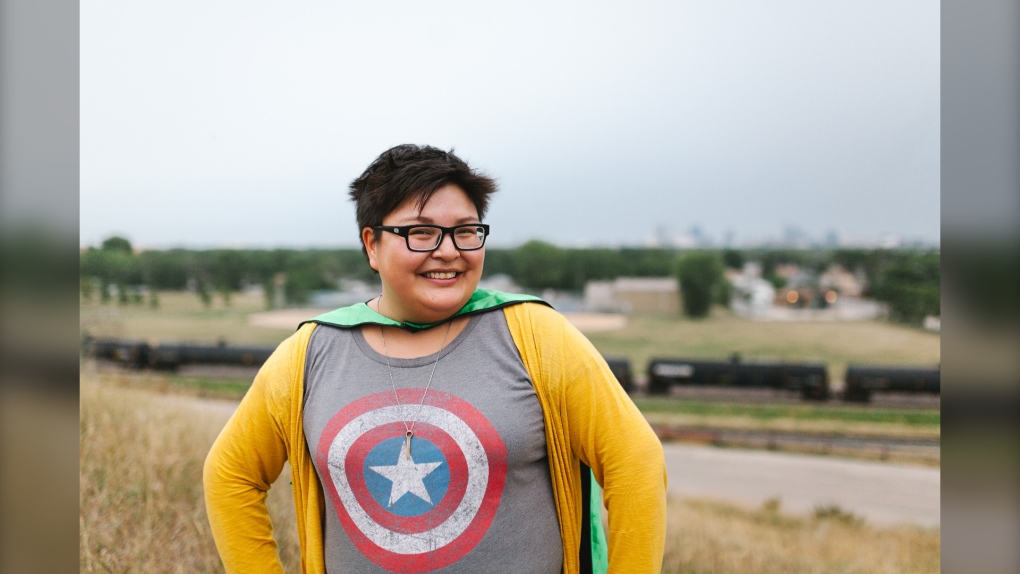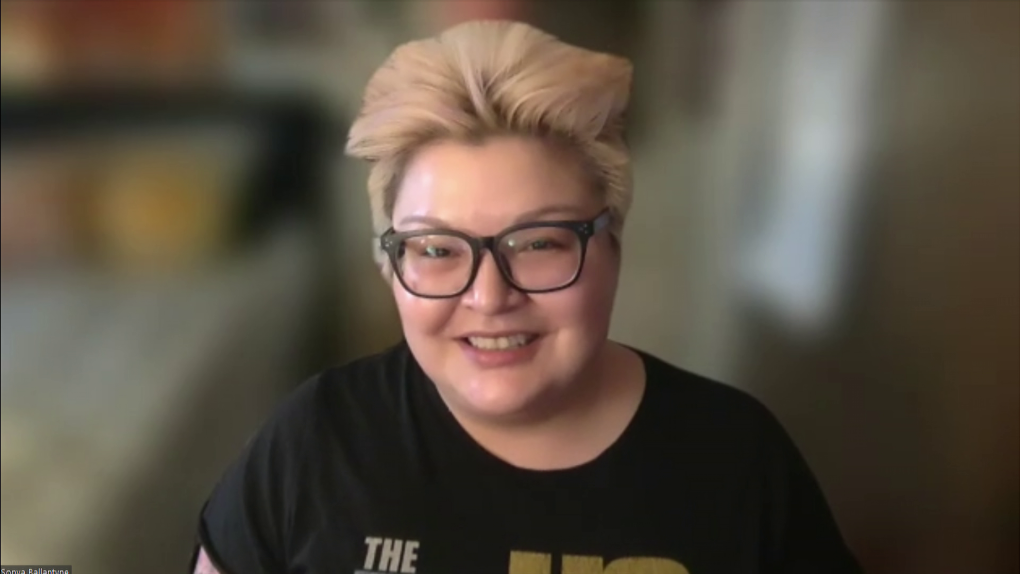Manitoba filmmaker’s debut feature headed to Cannes Film Festival
A Manitoba-born filmmaker’s debut feature documentary is headed to one of the world’s most prestigious film festivals.
Swampy Cree writer and director Sonya Ballantyne got the news earlier this month that her documentary “Death Tour” was tapped to represent Canada at the Cannes Film Festival Docs-In-Progress showcase next month.
“I was very overwhelmed with that, just because it's the Cannes Film Festival,” Ballantyne told CTV News Winnipeg in an interview.
“I never, ever thought I would get to go to Cannes as an artist, never mind with my first feature.”
The showcase will feature four Canadian documentaries that are still in progress or in the final stages of post-production, with the aim of being released within a few weeks or months.
Ballantyne’s film “Death Tour,” which she co-directs with Stephan Peterson, follows professional wrestlers on “the hardest tour in indie wrestling,” making stops in northern Manitoba and Indigenous communities.
The subject matter represents a full circle moment from Ballantyne’s childhood on the Misipawistik Cree Nation, about 330 kilometres south of Thompson, Man.
The Death Tour made a stop in her hometown when Ballantyne was about five or six years old. She wanted to be a pro wrestler herself, but saw few opportunities for Indigenous girls in the sport.
Still, she got to meet the Ontario-born wrestler Edge when he was still an up-and-comer on the tour. The two hit it off, bonding over Luna Vachon, Ballantyne’s favourite wrestler.
“I was so excited because I had never met a wrestler in real life,” she recalled. “To meet one in my very own hometown was such a great feeling for me.”
 Sonya Ballantyne is a Swampy Cree writer and director from Misipawistik Cree Nation. Her debut feature documentary is headed to the Cannes Film Festival's Docs-In-Progress showcase next month. (Source: Mary Vallarta)
Sonya Ballantyne is a Swampy Cree writer and director from Misipawistik Cree Nation. Her debut feature documentary is headed to the Cannes Film Festival's Docs-In-Progress showcase next month. (Source: Mary Vallarta)
In addition to being a wrestling fan, Ballantyne was passionate about writing from a young age, describing it coming as naturally to her as breathing.
She went on to graduate from the University of Winnipeg’s Theatre and Film department and is an alumnus of the National Screen Institute’s Indigenous Voices program.
Ballantyne initially tried her hand at filmmaking to keep control over her written work.
“People would often try to change the content of what I was creating. So instead of having Indigenous women, they would change it to Caucasian boys, and instead of a rez, it would be in a city,” she said.
“That was something I didn't really want to have done, because the stories I write are so essentially Indigenous and about the rez and about the experience of being an Indigenous girl.”
She stepped away from filmmaking and was finding success and fulfillment in writing. She scored credits on television series, a video game and the Sesame Street Workshop.
But when Peterson approached her to help direct “Death Tour,” she couldn’t pass it up. He had already started following the notoriously grueling tour, and saw an opportunity to collaborate.
“On the Death Tour, many of the audiences they performed for were Indigenous kids in places like Garden Hill and Gods Lake Narrows, Gods River, those sorts of places, and so he wanted to ensure that those stories were told as authentically as possible.”
Ballantyne and Peterson are aiming to complete the film by the end of the year. She hopes its appearance at Cannes will help garner the rest of the funding and connect the film with future festival and distribution opportunities.
Professional aspirations aside, Ballantyne plans to enjoy the French beaches and food and hopefully, a celebrity sighting or two.
“Like every woman in the Western Hemisphere right now, I would love to meet Pedro Pascal.”
 Filmmaker Sonya Ballantyne is shown in a still from a April 19, 2023 interview at her Winnipeg home.
Filmmaker Sonya Ballantyne is shown in a still from a April 19, 2023 interview at her Winnipeg home.
Through the festival and beyond, she hopes to be an example to other Indigenous women and girls looking to work in the arts.
She’s heartened to see social media platforms like TikTok and Twitch giving more Indigenous kids the chance to create.
“Growing up, there wasn't very many opportunities, or there wasn't even any idea that a native woman, a native girl could be a creative person,” she said.
“I feel very lucky now that every opportunity I took to learn how to write and how to create and the people I've met who have taught me have led me here.”
CTVNews.ca Top Stories

Mark Carney reaches out to dozens of Liberal MPs ahead of potential leadership campaign
Mark Carney, the former Bank of Canada and Bank of England governor, is actively considering running in a potential Liberal party leadership race should Justin Trudeau resign, sources tell CTV News.
'I gave them a call, they didn't pick up': Canadian furniture store appears to have gone out of business
Canadian furniture company Wazo Furniture, which has locations in Toronto and Montreal, appears to have gone out of business. CTV News Toronto has been hearing from customers who were shocked to find out after paying in advance for orders over the past few months.
WATCH Woman critically injured in explosive Ottawa crash caught on camera
Dashcam footage sent to CTV News shows a vehicle travelling at a high rate of speed in the wrong direction before striking and damaging a hydro pole.
A year after his son overdosed, a Montreal father feels more prevention work is needed
New data shows opioid-related deaths and hospitalizations are down in Canada, but provincial data paints a different picture. In Quebec, drug related deaths jumped 30 per cent in the first half of 2024, according to the public health institute (INSPQ).
Much of Canada is under a weather alert this weekend: here's what to know
From snow, to high winds, to extreme cold, much of Canada is under a severe weather alert this weekend. Here's what to expect in your region.
Jimmy Carter's state funeral has started. Here's what to know
Six days of funeral observances for former President Jimmy Carter began Saturday in Georgia, where he died on Dec. 29 at the age of 100.
Jeff Baena, writer, director and husband of Aubrey Plaza, dead at 47
Jeff Baena, a writer and director whose credits include 'Life After Beth' and 'The Little Hours,' has died, according to the Los Angeles County Medical Examiner.
Hundreds of animals killed in Dallas shopping centre fire
A fire that broke out at a shopping center in Dallas on Friday morning killed more than 500 animals, most of which were small birds, authorities said.
MP Peter Fragiskatos calls on Trudeau to resign
Prime Minister Justin Trudeau has lost the confidence of another prominent Liberal MP.


































